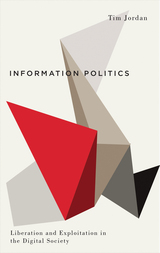2 books about Digital Society

Communication Research into the Digital Society
Fundamental Insights from the Amsterdam School of Communication Research
Theo Araujo
Amsterdam University Press, 2024
Media and communication have become ubiquitous in today’s societies and affect all aspects of life. On an individual level, they impact how we learn about the world, how we entertain ourselves, and how we interact with others. On an organisational level, the interactions between media and organisations, such as political parties, NGOs, businesses and brands, shape organisations’ reputation, legitimacy, trust and (financial) performance, as well as individuals’ consumer, political, social and health behaviours. At the societal level, media and communication are crucial for shaping public opinion on current issues such as climate change, sustainability, diversity, and well-being. Media challenges are widespread and include mis- and disinformation, the negative impact of algorithms on our information diets, challenges to our privacy, cyberbullying, media addiction, and unwanted persuasion, among many others. All this makes the study of media and communication crucial.
This book provides a broad overview of the ways in which people create, use, and experience their media environment, and the role of media and communication for individuals, organisations, and society. The chapters in the book were written by researchers from the Amsterdam School of Communication Research (ASCoR) on the occasion of its 25th anniversary. ASCoR is today the largest research institute of its kind in Europe and has developed over the past 25 years into one of the best communications research institutes in the world.
This book provides a broad overview of the ways in which people create, use, and experience their media environment, and the role of media and communication for individuals, organisations, and society. The chapters in the book were written by researchers from the Amsterdam School of Communication Research (ASCoR) on the occasion of its 25th anniversary. ASCoR is today the largest research institute of its kind in Europe and has developed over the past 25 years into one of the best communications research institutes in the world.
[more]

Information Politics
Liberation and Exploitation in the Digital Society
Tim Jordan
Pluto Press, 2015
Conflict over information has become a central part of twenty-first century politics and culture. Currents of liberation and exploitation course through the debates about Edward Snowden and surveillance, Anonymous, the Arab Spring, search engines, and social media. In Information Politics, Tim Jordan confronts contemporary panic about whether we are being controlled by digital systems, such as social networks, iPhones, and Google. He approaches these issues in relation to the information politics that have emerged with the rise of mass digital cultures and the internet. Within our modern world, he argues for possibilities of rebellion and liberation interwoven among social and political conflicts including gender, class, and ecology.
The first of Pluto Press’s new Digital Barricades series, focusing on ground-breaking critical explorations of resistance within the digital world, Information Politics explores the exploitations both facilitated by, and contested through, increases in information flows; the embedding of information technologies in daily life; and the intersection of network and control protocols. Anyone hoping to get to grips with the rapidly changing terrain of digital culture and conflict should start here.
The first of Pluto Press’s new Digital Barricades series, focusing on ground-breaking critical explorations of resistance within the digital world, Information Politics explores the exploitations both facilitated by, and contested through, increases in information flows; the embedding of information technologies in daily life; and the intersection of network and control protocols. Anyone hoping to get to grips with the rapidly changing terrain of digital culture and conflict should start here.
[more]
READERS
Browse our collection.
PUBLISHERS
See BiblioVault's publisher services.
STUDENT SERVICES
Files for college accessibility offices.
UChicago Accessibility Resources
home | accessibility | search | about | contact us
BiblioVault ® 2001 - 2024
The University of Chicago Press









